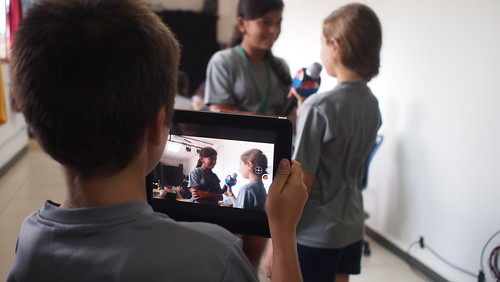En ny rapport från World Economic Forum (WEF), Schools of the Future Defining New Models of Education for the Fourth Industrial Revolution, lägger fram nya modeller för framtidens skola kopplade till goda exempel från olika delar av världen. Rapporten betonar behovet av nya utbildningsmodeller för att rusta våra barn för framtiden.
In the context of job disruption, demand for new skills and increased socioeconomic polarization, primary and secondary school systems have a critical role to play in preparing the global citizens and workforces of the future. Education models must adapt to equip children with the skills to create a more inclusive, cohesive and productive world.
Rapporten utgår ifrån ett ramverk, Education 4.0, som definierar 8 kategorier nyckelfärdigheter och pedagogiker:
- Globala färdigheter. Större medvetenhet om omvärlden och hur den påverkar oss. Att bli en aktiv medborgare. Bygga ett hållbart samhälle.
- Innovation och kreativitet. Problemlösning, kreativitet, kritiskt tänkande
- Tekniska färdigheter. Omfattar även digitala kompetenser, ansvarsfull använding av teknik, programmeringskunskaper.
- Interpersonell kompetens. Social kompetens, kollaboration, empati.
- Individanpassat och självstyrt lärande. Bättre elevanpassning och större flexibilitet.
- Tillgänglighet och inkluderande. Alla ska ha tillgång till bra undervisning och möjligheter att lära sig.
- Problembaserat och kollaborativt lärande. Större fokus på samarbete och kritiskt tänkande.
- Livslångt och studentdrivet lärande. Utbildning tar aldrig slut. Konsten att lära sig.
Rapporten utvecklar dessa begrepp och ger flera inspirerande exempel från skolor runt om i världen. Men för att hantera den här utvecklingen krävs samarbete och samordning på alla nivåer: lokalt, regionalt, nationellt och internationellt.

Inga kommentarer:
Skicka en kommentar